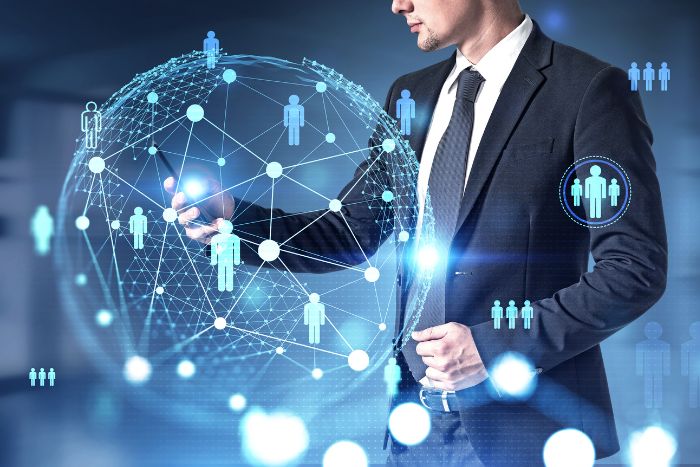The transformation of human resource management within organizations is imminent, in fact, it has already begun. The continuous evolution of artificial intelligence is significantly influencing how organizations hire, develop, and derive value from their people. According to an estimate conducted by Gartner globally, companies that do not adopt AI solutions within the next 12 months will lose their competitiveness compared to those that do.
Index:
- Recruiting and Onboarding
- Internal Mobility, Learning, and Development
- Assessment and Workforce Planning
AI is destined to influence every aspect of the employee lifecycle, including talent acquisition, employee voice (VoE) listening, career development, learning, and HR service management. The goals that can be achieved through the integration of AI into the HR function include improving efficiency, reducing costs, but also and above all, enhancing employee experience and supporting training and people development. Here are some practical areas where AI and HR already intersect and demonstrate their real potential.
Recruiting and Onboarding
Artificial Intelligence has revolutionised both the recruiting and onboarding processes within organizations. In recruiting, AI quickly identifies qualified candidates, reducing biases and human errors and excluding those who do not meet certain essential requirements. Furthermore, thanks to the widespread use of short video interviews, AI collects important data on candidates' paraverbal communication, providing valuable insights into their personalities and empathic abilities.
In onboarding, the use of AI improves the welcoming and management of procedures for new employees. It supports the completion of administrative tasks ensuring a smooth and efficient process and allowing teams to focus on the human aspect of integrating new employees. AI integrated into HR software guides new hires through modules, company policies, and initial training sessions, reducing stress and turnover by immediately involving them in the organization.
Internal Mobility, Learning, and Development
Artificial Intelligence offers two powerful applications in Human Resources: internal mobility and employee learning and development.
In internal mobility, AI helps HR identify talent within the company,facilitating matching between employees and departments to fill vacant positions. This not only simplifies the promotion process but also promotes the professional development of employees, making the best use of the organization's internal resources.
In learning and development, the use of AI allows for personalised training activities based on each employee's skills and career goals. This approach not only motivates employees to engage in professional development, increasing engagement, but also ensures they remain aligned with the company's evolution.
Assessment and Workforce Planning
In performance assessment, AI analyzes employee data to provide detailed reports and objective evaluations, based on defined parameters such as the number of completed tasks and time taken. This process simplifies performance management, eliminating biases and offering predictions on future performance. Additionally, it can monitor online activities such as emails and group chats to detect signs of burnout and inappropriate behaviors.
In workforce planning, AI supports HR in analyzing the current workforce and identifying the roles needed to achieve long-term business objectives. Through the analysis of employees' current skills, industry trends, and business development plans, AI software contributes to precise workforce planning, anticipating the roles needed for the future.
The advent of AI in the field of Human Resources has n recent months led to an unprecedented transformation. In the current HR landscape, AI is involved and influences every aspect of the employee lifecycle, redefining how organizations hire, develop, and capitalize on their human capital.

